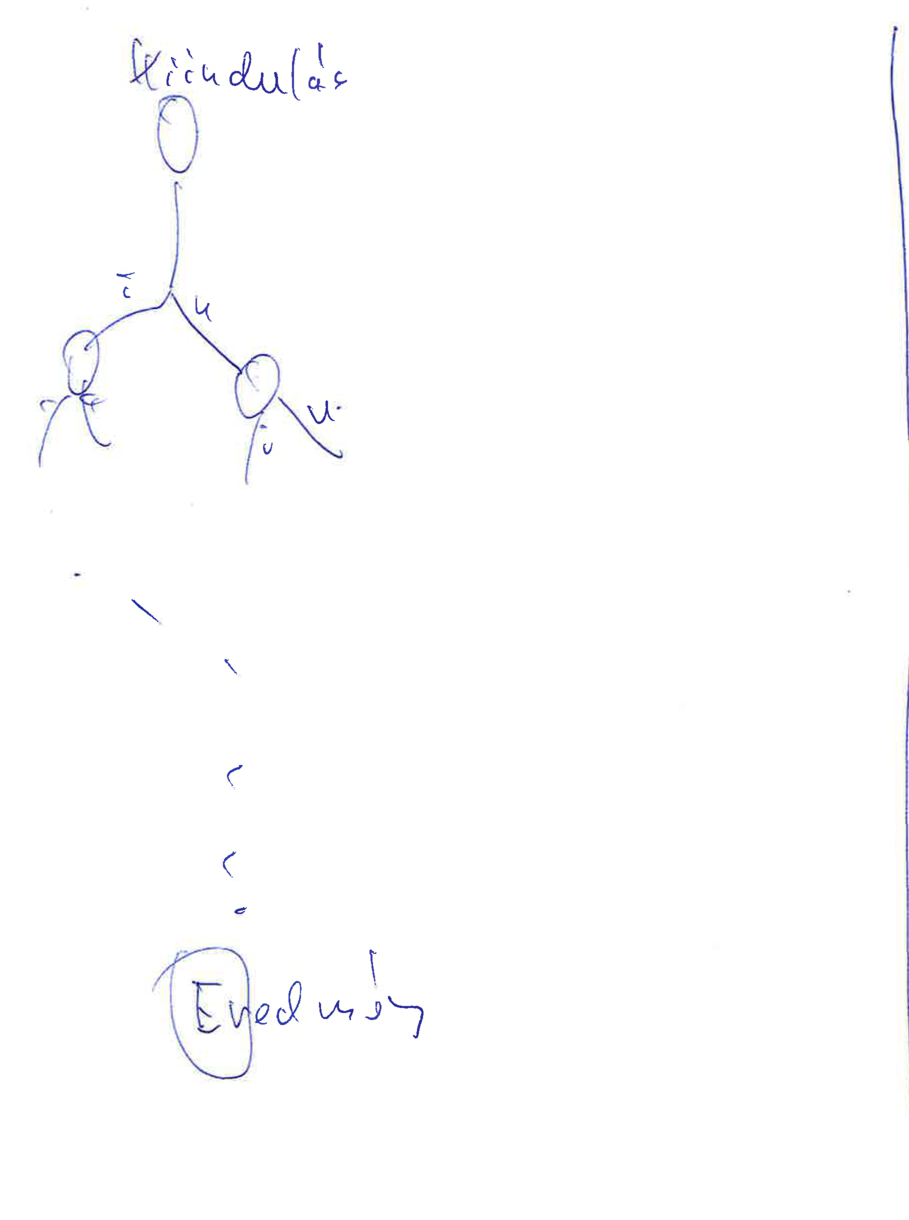An algorithm, drawn by a 69-year-old male retired businessman in Hungary.

Now I would ask for one more drawing. We're almost done. Now I would like to ask you to draw how an algorithm works, on this half. You put down the pen, it won't work that way. Well, I know what an algorithm is, but it can't be drawn. But, draw it somehow! But what can be drawn on an algorithm? But you can talk in the meantime. I'm sorry, I have to pass, so ... But… the working of an algorithm … the drawing of it... But something, you could draw the Internet, too. We don't need any art. Otherwise logical flowcharts can be made. Okay, then I'd like one. There's a starting point, there's a junction, it's going this way, it's going this way, these are yes-es, and no-s. And if it's a no, it goes on, yes, it goes on and there are more branches here. So we end up here, these are the results. So that's how an algorithm works. Good. Thanks. When they design one, they also try to put it in the flowchart because it has to be sorted out. Well, programming languages are so full of them, there are logical, so like yes, no. They are organized into cycles and they can be branch out by condition. And to do that, I always have to plan what I want under what conditions and this is what I call an algorithm. Would you write here result? Just to have it. So that was the result. And what was that here? Starting point. Starting point. Good. Yes, No. Start ... ...ing Starting yeah, I see. My lovely little letters. Alright, thank you. I know you are retired now, but what field did you work in? In the first half of my active life I was a chemical engineer and in the second half as an entrepreneur. Ah, yes. Now what you know about algorithms, how do you know it? Or where do you know it from? Well, I made simple programs for myself. For example, this is very common, this Office program and also in Microsoft programs, also in Word, and more in Excel. It has an auxiliary language, so where ... I want to process something about Excel data, and however rich the Excel collection of formulas may be, maybe it can not be solved using with only one formula, then you can write short programs that solve either the repetitive tasks or the data collection. And that's the same task as, you know, writing an operating system, it is just simpler and clearer, but the principle is the same. And when you were working, did you write those? I am still entertaining myself by, for example, compiling an Excel file and then making a program selecting data from it. Yes. But this is just for my own amusement. But that's how data can be processed. No, I was just interested how you learned this? Or when or why? At that time, I went to an engineering training continuing education course and different courses. What kind of training? Continuing Engineering Education. At the university we studied the programming language theoretically, I think nowadays the IT engineers had never heard of it, it was called Algol 60, which was the programming language of big computers. Then the insiders, the fortrans, said that it was more modern, no one had ever heard of that either. Yes. Now, C + is what's running, or C ++++, and these have such high-level, low-level languages, so that ... you can look it up and learn it. And all of this consists of such simple, simplified subtasks, comparing specific things and making a decision based on it. The technology is suitable for this. And have you learned things online? Doing courses, about programming, something? No? But back then, there was a special engineer training course on how to search the professional database and then the point of the course was how to put together a search key. Because this was the big machine system and it was very fussy about the so-called syntax, about spelling. And then, for example, I was astonished when it said we could search in a New York database or the one in Tokyo, and we were in Veszprem [town in West Hungary]. No one is surprised today, of course. Yes. Back then I was still amazed at this. When was it? Well, let's say in the '70s. 70s. So when there were no computers like the ones we have today. Of course. The first PC launched in the 80's. Okay.